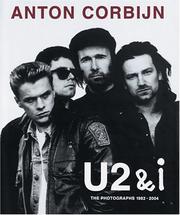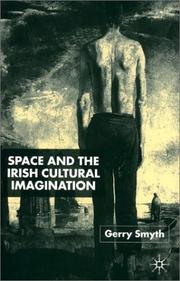| Listing 1 - 10 of 11 | << page >> |
Sort by
|
Book
Abstract | Keywords | Export | Availability | Bookmark
 Loading...
Loading...Choose an application
- Reference Manager
- EndNote
- RefWorks (Direct export to RefWorks)
Un livre remarquable par un artiste combatif, qui avoue donner le meilleur de lui-même lorsqu'il apprend à capituler. Episodique et irrévérencieux, introspectif et éclairant, Surrender est le récit organisé — mais pas trop — de la vie de Bono autour de 40 chansons de U2. Bono a grandi dans le nord de Dublin entre un père catholique et une mère protestante, alors que les violences sectaires se multipliaient en Irlande.Il n'avait que quatorze ans lors du décès de sa mère, perte qui va façonner sa recherche d'une famille. Il a commencé sa vie avec le sentiment d'être quelconque, pourtant toute son existence sera consacrée à combattre l'idée que quiconque puisse l'être. Sa créativité est éruptive mais ne le quitte jamais... dans les studios, sur scène, dans les manifestations, les couloirs du Congrès à Washington ou au comptoir du bar du coin.Nous découvrons ses difficultés à maîtriser sa colère, qui teintent ses écrits sur l'amour et la non-violence. Il reconnaît avoir un égo " bien plus grand que [s]on amour-propre". En quatre décennies, U2 passe d'une bande d'adolescents ambitieux au plus grand groupe au monde. Bono, initialement activiste à mi-temps, devient une force à plein temps dans la lutte pour l'annulation de la dette des pays les plus pauvres, et persuade les gouvernements — et en particulier les Etats-Unis — de répondre à l'urgence mondiale qu'est le sida.Nous assistons à la naissance du PEPFAR, le plan d'urgence américain d'aide à la lutte contre le sida à l'étranger. A l'époque, il s'agissait de la plus grande initiative sanitaire de l'histoire de la médecine pour combattre une seule et même maladie. Il décrit les militants de l'ONG ONE, dont il est le cofondateur, comme étant des " factivistes " — des activistes s'appuyant sur des faits concrets —, et son organisation soeur, (RED), comme une " drogue d'entrée " dans le militantisme.Les fans de U2 apprendront pourquoi, selon Bono, le groupe ne s'est jamais séparé malgré des décennies de difficultés personnelles et de désaccords créatifs enflammés, et trouveront la clé pour décrypter le sens des morceaux les plus populaires et influents du groupe.
Book
Abstract | Keywords | Export | Availability | Bookmark
 Loading...
Loading...Choose an application
- Reference Manager
- EndNote
- RefWorks (Direct export to RefWorks)
U2 (Musical group) --- U2 (Group) --- History
Book
ISBN: 9789089311177 Year: 2010 Publisher: Gent Borgerhoff & Lamberigts
Abstract | Keywords | Export | Availability | Bookmark
 Loading...
Loading...Choose an application
- Reference Manager
- EndNote
- RefWorks (Direct export to RefWorks)
Book
ISBN: 1350032573 1350032557 9781350032576 9781350032552 Year: 2018 Publisher: New York : Bloomsbury Academic,
Abstract | Keywords | Export | Availability | Bookmark
 Loading...
Loading...Choose an application
- Reference Manager
- EndNote
- RefWorks (Direct export to RefWorks)
"U2 and the Religious Impulse examines indications in U2's music and performances that the band work at conscious and subconscious levels as artists who focus on matters of the spirit, religious traditions, and a life guided by both belief and doubt. U2 is known for a career of stirring songs, landmark performances and for its interest in connecting with fans to reach a higher power to accomplish greater purposes. Its success as a rock band is unparalleled in the history of rock 'n' roll's greatest acts. In addition to all the thrills one would expect from entertainers at this level, U2 surprises many listeners who examine its lyrics and concert themes by having a depth of interest in matters of human existence more typically found in literature, philosophy and theology. The multi-disciplinary perspectives presented here account for the durability of U2's art and offer informed explanations as to why many fans of popular music who seek a connection with a higher power find U2 to be a kindred spirit. This study will be of interest to scholars and students of religious studies and musicology, interested in religion and popular music, as well as religion and popular culture more broadly."--Bloomsbury Publishing.
Book
ISBN: 1501397613 1441114173 9781441114174 Year: 2007 Publisher: New York : Continuum,
Abstract | Keywords | Export | Availability | Bookmark
 Loading...
Loading...Choose an application
- Reference Manager
- EndNote
- RefWorks (Direct export to RefWorks)
"Stephen Catanzarite takes a close look at what many consider to be U2's most fully formed album through the prisms of religion, politics, spirituality, and culture, illuminating its previously unexplored depths, arguing that it's a concept album about love and the fall of man."--Bloomsbury Publishing.
Book
ISBN: 0810881578 9780810881570 9781442243538 Year: 2014 Publisher: Lanham, Md. Scarecrow Press
Abstract | Keywords | Export | Availability | Bookmark
 Loading...
Loading...Choose an application
- Reference Manager
- EndNote
- RefWorks (Direct export to RefWorks)
Exploring U2: Is This Rock 'n' Roll? features new writing in the growing field of U2 studies. Edited by Scott Calhoun, with a foreword by Anthony DeCurtis, Exploring U2 contains selections from the 2009 inaugural gathering of "The Hype and The Feedback: A Conference Exploring The Music, Work and Influence of U2." In keeping with U2's own efforts to remove barriers that have long prevented dialogue for understanding and improving the human experience, this collection of essays examines U2 from perspectives ranging from the personal to the academic and is accessible to curious music fans, students, teachers, and scholars alike. Four sections organize 16 essays from leading academics, music critics, clergy, and fans. From the academic disciplines of literature, music, philosophy, and theology, essays study U2's evolving use of source material in live performances, the layering of vocal effects in signature songs, the crafting of a spiritual community at live concerts, U2's success as a business brand, Bono's rhetorical presentation of Africa to the Western consumer, and readings of U2's work for irony, personhood, hope, conservatism, and cosmic-time. Official band biographer Neil McCormick considers U2 as a Dublin-shaped band, and Danielle Rhéaume tells how discovering and returning Bono's lost briefcase of lyrics for the album October propelled her along her own artistic journey. This thoughtful and timely collection recognizes U2's music both as art and commentary on personal journeys and cultural dialogues about contemporary issues. It offers insights and critical assessments that will appeal not only to scholars and students of popular music and culture studies but to those in the fields of theology, philosophy, the performing arts, literature, and all intellectually curious fans of U2 [Publisher description].

ISBN: 3829601743 Year: 2005 Publisher: München Schirmer/Mosel
Abstract | Keywords | Export | Availability | Bookmark
 Loading...
Loading...Choose an application
- Reference Manager
- EndNote
- RefWorks (Direct export to RefWorks)
U2 --- 761.2 --- 766.2 --- 766.6 --- Corbijn, Anton --- fotografie --- popsterren --- portretfotografie --- fotografen, afzonderlijk --- portretfotografie - kinderfotografie, naaktfotografie --- persfotografie en fotoreportage
Book
ISBN: 0271086270 0271086297 Year: 2019 Publisher: University Park, Pennsylvania : The Pennsylvania State University Press,
Abstract | Keywords | Export | Availability | Bookmark
 Loading...
Loading...Choose an application
- Reference Manager
- EndNote
- RefWorks (Direct export to RefWorks)
For many, U2's Bono is an icon of both evangelical spirituality and secular moral activism. In this book, Chad E. Seales examines the religious and spiritual culture that has built up around the rock star over the course of his career and considers how Bono engages with that religion in his music and in his activism. Looking at Bono and his work within a wider critique of white American evangelicalism, Seales traces Bono's career, from his background in religious groups in the 1970s to his rise to stardom in the 1980s and his relationship with political and economic figures, such as Jeffrey Sachs, Bill Clinton, and Jesse Helms. In doing so, Seales shows us a different Bono, one who uses the spiritual meaning of church tradition to advocate for the promise that free markets and for-profits will bring justice and freedom to the world's poor. Engaging with scholarship in popular culture, music, religious studies, race, and economic development, Seales makes the compelling case that neoliberal capitalism is a religion and that Bono is its best-known celebrity revivalist. Engagingly written and bitingly critical, Religion Around Bono promises to transform our understanding of the rock star's career and advocacy. Those interested in the intersection of rock music, religion, and activism will find Seales's study provocative and enlightening.
Evangelicalism. --- Neoliberalism --- Religious aspects --- Christianity. --- Bono, --- Religion. --- Criticism and interpretation. --- Africa. --- Bono. --- Capitalism. --- Corporate Philanthropy. --- Globalization. --- Neoliberalism. --- Revivalism. --- U2.
Book
ISBN: 9780271086293 0271086297 9780271084893 0271084898 0271086270 Year: 2019 Publisher: University Park, Pennsylvania : The Pennsylvania State University Press,
Abstract | Keywords | Export | Availability | Bookmark
 Loading...
Loading...Choose an application
- Reference Manager
- EndNote
- RefWorks (Direct export to RefWorks)
For many, U2's Bono is an icon of both evangelical spirituality and secular moral activism. In this book, Chad E. Seales examines the religious and spiritual culture that has built up around the rock star over the course of his career and considers how Bono engages with that religion in his music and in his activism. Looking at Bono and his work within a wider critique of white American evangelicalism, Seales traces Bono's career, from his background in religious groups in the 1970s to his rise to stardom in the 1980s and his relationship with political and economic figures, such as Jeffrey Sachs, Bill Clinton, and Jesse Helms. In doing so, Seales shows us a different Bono, one who uses the spiritual meaning of church tradition to advocate for the promise that free markets and for-profits will bring justice and freedom to the world's poor. Engaging with scholarship in popular culture, music, religious studies, race, and economic development, Seales makes the compelling case that neoliberal capitalism is a religion and that Bono is its best-known celebrity revivalist. Engagingly written and bitingly critical, Religion Around Bono promises to transform our understanding of the rock star's career and advocacy. Those interested in the intersection of rock music, religion, and activism will find Seales's study provocative and enlightening.
Evangelicalism. --- Neoliberalism --- Religious aspects --- Christianity. --- Bono, --- Religion. --- Criticism and interpretation. --- Africa. --- Bono. --- Capitalism. --- Corporate Philanthropy. --- Globalization. --- Neoliberalism. --- Revivalism. --- U2.

ISBN: 0333794079 Year: 2001 Publisher: Basingstoke Palgrave
Abstract | Keywords | Export | Availability | Bookmark
 Loading...
Loading...Choose an application
- Reference Manager
- EndNote
- RefWorks (Direct export to RefWorks)
Personal space in literature --- Popular culture --- Space and time in literature --- Space perception --- Social aspects --- Deane, Seamus, --- U2 (Musical group) --- Ireland --- Northern Ireland --- Historical geography. --- In literature.
| Listing 1 - 10 of 11 | << page >> |
Sort by
|

 Search
Search Feedback
Feedback About UniCat
About UniCat  Help
Help News
News